What is more important to you, great ideas or killer skills? I am not saying that it is either/or, or that you shouldn’t aim for both, but asking you to consider that if at the end of your career, if you had to choose, would you rather be known for expressing profound and compelling ideas, or painting with incredible skill and dexterity?
It is hard to imagine a great piece of art without a large measure of both, but I have pieces that I admire more for one than the other and will present some of those later in this post.
While I don’t subscribe to the thought that if someone says it is art that I have to agree, there are pieces that I admire more for the idea than the skill involved in the creation. The overall quality of a piece of art is also a little slippery to quantify due to the subjective aspects of art. There is no scale upon which measure the ‘artiness’ of a piece. So, keep in mind that I will be offering my opinions and asking for feedback to help round out my thoughts.
Ideas
I would say that “found object” art can be purely ‘idea’ art. Marcel Duchamp’s “ready-mades” were pieces that Duchamp took and declared were art. There was not any personal execution of skill involved on the part of Duchamp, other than maybe arrangement, just his attempt to change perception and pose an idea.
Just today I saw a post about Jeff Koons copying a Dark Horse figure of Popeye, but making it shiny and rebranding it as high art. He had permission to copy it. I am sure there was some real expertise involved in getting casting the figurine, though not as much skill as the original sculptor. He took something that existed and reformulated it. By the way, he sold it for $28 million dollars… I wonder how much the original sculptor made? Here is the story. I see this as the selling of an idea, not skill.
Skills
On the other end of the spectrum, I would place work done solely for beauty’s sake. Paintings that are purely done as an exhibition of skill, done to such a degree that the patron admires it regardless of what it may or may not be expressing. It is hard to say that there is no ‘idea’ or ‘concept’ being expressed, but I think it is fair to say that some paintings the idea definitely takes a distant back seat to the execution.
Much of the 20th century was spent beating skill out of the art schools. In my college experience the illustration students had separate classes from the fine art students. We both took life drawing but the goals stated were completely different. The illustration students were trying to learn accuracy and refining observation while the fine art students were all about expressing an idea, drawing inspiration from the model in front of them. It was even referred to as ‘conceptual figure drawing.’
I was talking just a month ago to one of my professors and he said that he was in a class of one of the other teachers. This was on the board:
Art should not exhibit:
1. Skill
2. Emotion
I find that rather shocking and disheartening. The art I love has a lot of at least one of those things, and often a good dose of both!
There has been a resurgence of academic training with great schools like Grand Central Academy and The Florence Academy of Art. Artists can once again find the rigorous training and similar structure to that which produced so many great artists in the past. However, the ability to render accurately will not produce a Rubens or Waterhouse alone.
Walking through galleries I see many incredible paintings with a similar theme “figure with fabric”. I admire them, and they have a valuable place in any artists work, but I hope that we soon see a bigger emphasis on expressing a bigger idea or narrative.
*side note: James Gurney accurately states that “narrative” is not a very good term because a narrative needs a sequence of events. He suggests that Detective Storytelling is a more descriptive term. I like it.
That thought is alive and well in the illustration world. It is what we are asked to do with most commissions. It is expected that illustrators have skill but also be able to express concepts. It is why I am proud to call myself an illustrator. If you read about the Prix de Rome contests held in the French Academy, you will see that the winner was expected to express both a clear and impactful idea but also paint with exceptional skill. It was a brutal process, putting students through a series of exercises intended to extract the very most out of each entrant.
I was talking about this last week with Peter Mohrbacher and Samuel Flegal on their webcast One Fantastic Week. Pete and Sam had some good thoughts. You can watch the video here: One Fantastic Week, episode 25. If you want to skip to the part where we talk about this subject, jump to the 48 minute mark.
Starting out
As a student, I think it is important to focus on skill. I am going to call on William Bouguereau to back me up. Here is a quote:
“Theory has no place in an artist’s basic education. It is the eye and the hand that should be exercised during the impressionable years of youth. It is always possible to later acquire the accessory knowledge involved in the production of a work of art, but never — and I want to stress that point — never can the will, perseverance, and tenacity of a mature man make up for insufficient practice. And can there be such anguish compared to that felt by the artist who sees the realization of his dream compromised by weak execution?”
I agree, but I think that at some point in a students education, we need to learn how to inject ideas in our work. Without it, I think a piece can be artistic fast food, quickly consumed without lasting intellectual nutrition.
Moving forward
So why did I write this post? I feel like my primary focus has been developing my skills thus far. Each morning I wake up, I ask myself “what am I going to do today to improve.” I currently preparing work for a gallery show. I am still in the sketch stage, working out ideas. There is no commission, no brief, just my ideas. Ideas ideas… This topic has been at the forefront for me lately. Do I want to aim solely for beauty, trying to sell on technical merit, or tell a story or inspire with some grand thought?
I don’t have a definitive answer to my initial question of skills vs. ideas. I don’t know that there needs to be an answer, but I think that asking yourself, what do I want others to get out of my work, is a very valuable question that only you can answer.



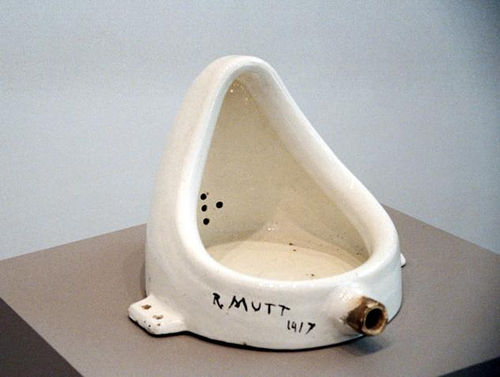
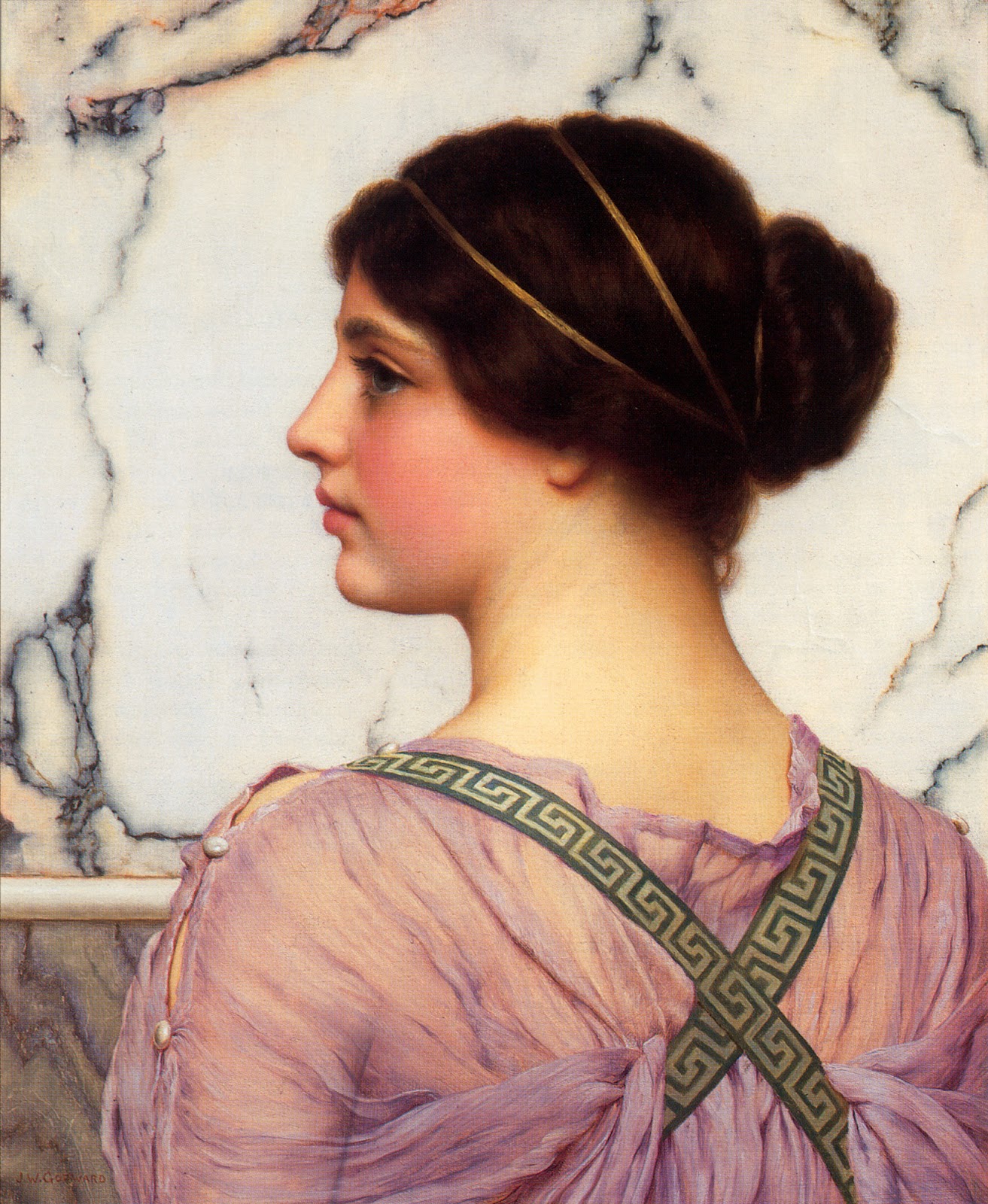
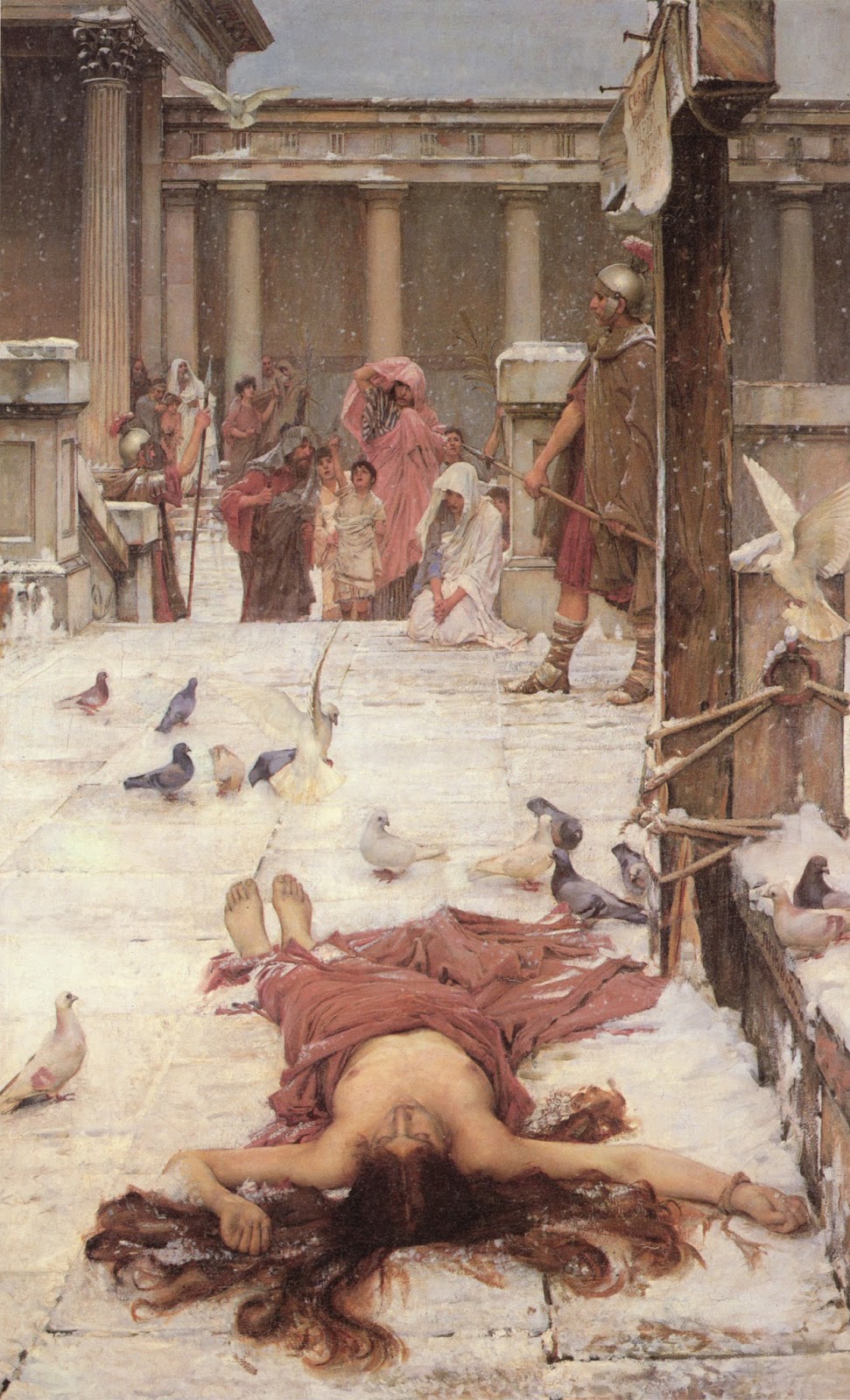

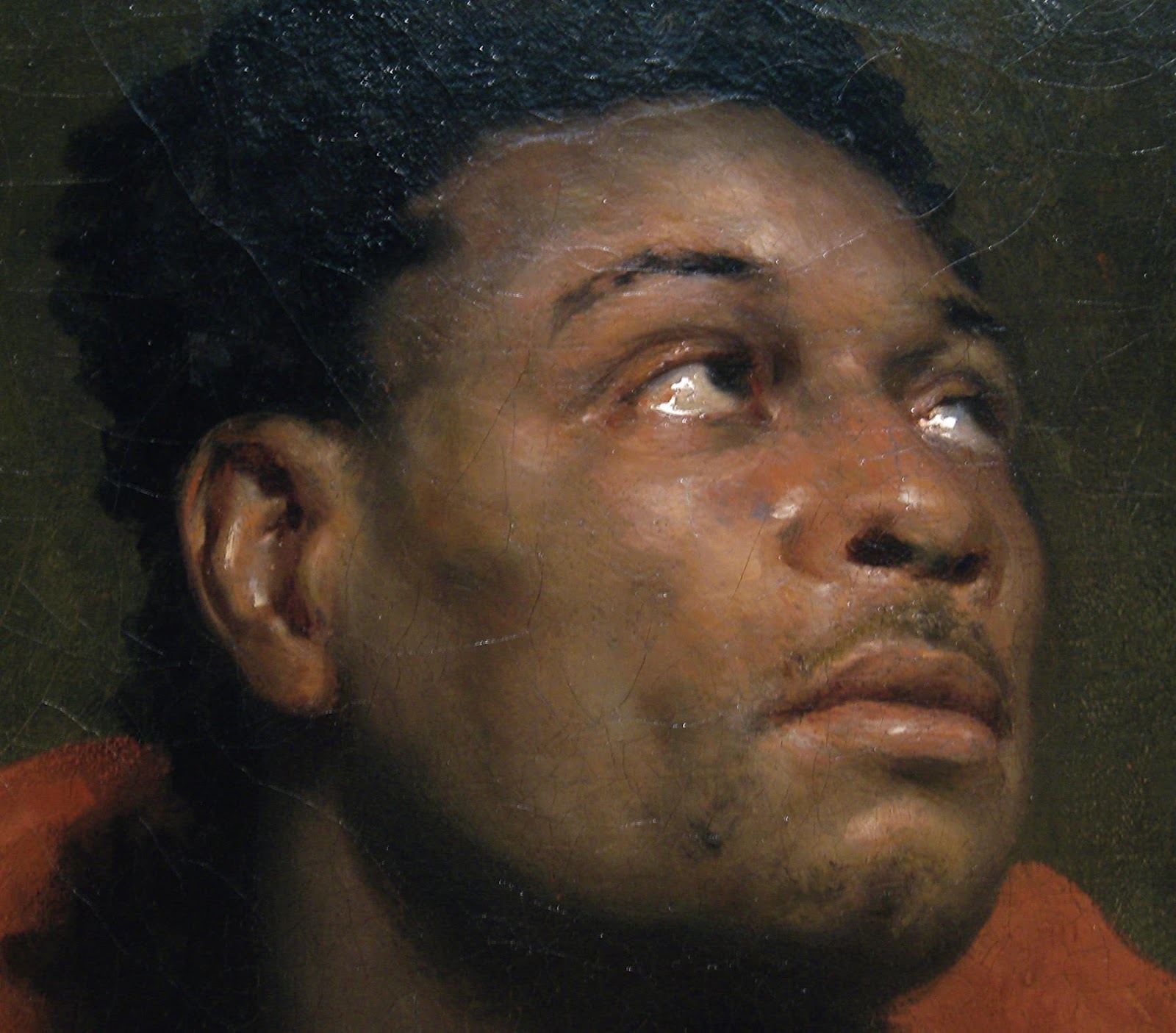
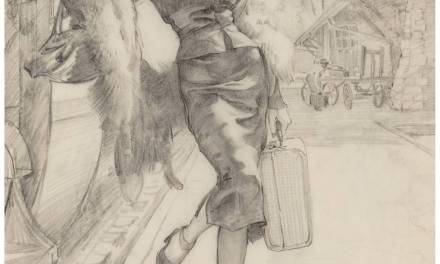
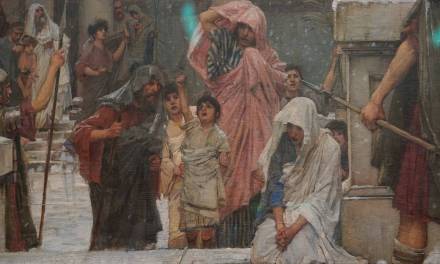
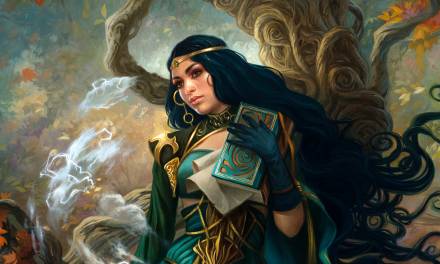
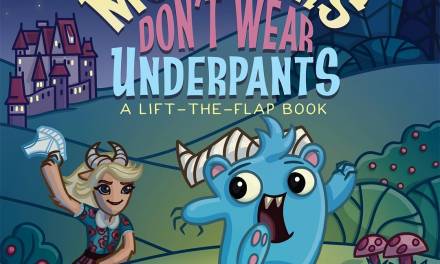

A couple of years ago I saw season 1 of the tv-series ”Work of art”, which surprisinglngly was a very interesting show.
One thing that I found was that in order for art to impress me there had to be significant skill at the bottom of it. There was this guy, Miles, who, despite being a very pretentious artist cliché who took himself way too seriously, also displayed some very real skills. He had a lot of carpentry, and he could actually draw. This allowed him to make art that bore a great deal of credibility, unlike some of the others who may have had equally brilliant ideas, but struggled to execute them.
This is something that I find a lot when talking to professionals in the illustration field – they have reached a level of skill that allows them to focus much more intensely on their ideas.
Art should not exhibit:
1. Skill
2. Emotion
Egads! I'd be curious to know just what that the professor who wrote that taught in his class…
Good post- It reminded me of the old Chinese saying that David Hockney likes to quote:
Drawing requires three things- The Eye, The Hand, and The Heart. Two will not do.
Great question. I really like Mary Whyte's simple but elegant advice on becoming an accomplished artist:
1. Something to say
2. The ability to say it.
3. The courage to do it
I think that's why artists are so attracted to the sketches and studies of the masters- it's where the original concept and mad skills exist in it's rawest form.
Wonderful post, Howard!
Tom – I watched that show as well. It was… interesting. I have to admit I had a hard time watching some of the antics of the artists on the show. I think you are right on though. It became clear on the show who had developed their skill and who had not. Thanks for commenting!
great post Howard.
I thought the same thing. If the piece shouldn't exhibit skill, what do you teach? I like that quote, thanks for sharing.
That is great advice. As steps in the process of becoming an artist, I would flip 1 and 2, but then it wouldn't read as well. 🙂
You are right about the old masters' sketches (or any sketches, I LOVED Greg Manchess' post the other day with all his great sketch work. Thanks for commenting!
Once again a really nice post Howard. We criticize those teachers who eschew skill, rightly so, but I also grow tired of those who throw the baby out with the bathwater. Artists genuinely on the path to knowledge and discovery changed the history of art because of their ideas and only a smattering of perceived skill. I certainly can't imagine an art world where the “academy” forces our every move.
Thank you Arnie! I am sad to have missed Spectrum Live this year, but am planning on attending next year. I hope you are recovered and rested from the effort.
Thank you!
Thank you Bill. I am excited to see the resurgence of academic training, but hope we will see the same zeal applied to grand narrative painting and even historical works! It is being done, but I want more please. For me it is the one last piece that needs to be restored, and not at the expense of anything else. I love the variety of expression that exists today and hope it continues to expand.
Ideas should have more importance, skills are just the vehicle to display the idea, with no idea the art becomes hollow. Lately i had seen tons of impressive skilled art, but the subject its boring, like look this realistic rock, and thats it a rock, you look at it, wooow impressive technique them you go away, the image cant keep you interested less than 10 seconds. And i had seen creative paintings from little kids,, no skills at all, but i just cant stop staring at them for minutes.
By the way love your publications and your way of thinking, keep them coming.
Thanks for giving my post a read and for both of your comments!
Hey Howard,
Bob told me the same story. I remember that there were a couple of other things listed and this was all in reference to contemporary art. The first two and possibly most critical points you listed that art must not display any apparent skill and must not evoke any emotion. I didn't write it down but in the version I got there was also mention that the art not display any obvious narrative or story and that there be no recognizable symbolism. My thought was that there would then be absolutely no reason for me to be interested in looking at it! I can't understand how in good conscience any art department can take a student's money, preach such rhetoric and then turn them out into the world with no skills and even less prospect of ever making a living. Oh, I forgot, it's a good thing they also teach that art is not about making money!
Great article, I guess the goal is to find the middle path.
What does it mean “figure with fabric”?
You need the technical skills to draw and paint what you see accurately and easily. If rendering whatever catches your eye is easy you are then free to interpret it, to do something wonderful – whether it's as simple as 'isn't this a beautiful woman?' or as powerful as “may this never, ever happen again to anyone.” If an artist is busy fighting to get their medium to do what they want it to they are distracted from their idea – and cannot do their best work. And throwing a bucket of paint at a wall and calling it “art” is 'clever marketing'… not art. Detective Storytelling is a very good way to describe engaging the viewer, causing them to think and step out of themself and into the artist's idea. It's an interaction, and a wonderful one.
Very interesting article and think that skill is something I would want to aspire too. Currently I am at the stage of personal great ideas but no skill. (Kind of like having bullets without the gun). Putting my current skill into those ideas would not come across well as I feel that the world would concentrate on the skill first then the narrative ( or detective storytelling). What I want out of others is to perceive my ideas first then skill. This I feel can only be done with a level of skill that makes it nearly invisible to the viewer. Does that make any sense to anybody.
A great read, and very well said.
Pilgrim, it makes perfect sense! The best technique does not draw attention to itself.
Balance seems to be the key. I agree with your thought “… at some point in a students education, we need to learn how to inject ideas in our work.”
This should be part of the education, taught simultaneously . If not, then at what point do we know it is time to pursue ideas?
Otherwise we might spend too long chasing the academic rabbit.
I would also argue that learning how to present an idea, or narrative or use symbolism etc. is its own skill in its own right. It won't just happen once we have trained our hand. It takes time.
On your comment to Bill, there are a lot of good ideas and concepts behind modern art, even if a more realist painters approach is the goal we can still look at modern art, learn from it and inject that into our own work, We don't have to be married to either the “academy” or “modern art” camp only as some think. It can be both.
Yes it does make sense.
Quoting from a book about Edward Hopper's work, “Edward Hopper The Watercolors” by Virginia M.Mecklenburg, “Fearful of falling prey to virtuoso brushwork and flashy effects, he took care that the sheer beauty of the medium never overwhelmed his subject.”
It says a lot about skills only without an idea behind it and is a notion I agree with.
A lot of academies and figurative schools produce experts at posing nude models adding some draped cloth or cloth on the floor. Mostly it's a figure study we see over and over again.
In general, art that impresses me the most has 3 ingredients: concept, skill, and charisma. Probably only skill can actually be taught and acquired by practice and perseverance. Charisma is something one can aspire to, but I think it is an almost magical element that is unique to the person and cannot really be learned. Concept, the idea and thought behind a work, adds special meaning to what would otherwise be “just a picture”. There are different levels of concepts however. Witness the “Conceptual Art” movement, which only involves the so called content, but generally the ideas are shallow and trite. Truly great concepts have thought provoking meaning!
This post is oddly appropriate for myself at this point in time–in the past few years I've done a good amount of scientific illustration (dinosaur fossils, a museum mural, etc.), but lately I have found that I've gotten extremely bored with it. With my scientific illustration, the point was to literally be all skill and no idea, and I've found it to be lacking. I'm now moving toward more conceptual and imaginative illustration and find it much more satisfying to work on. Thanks for sharing your thoughts!
I love the idea you put about artistic fast food! Great article. As far a Duchamp goes….nope, i'll leave it at that
Wow. Coming in a little late, but this is mighty post, Howard. I suppose I'm firmly in the “skills” camp (though my skills could definitely use improvement): I try to paint stuff that's pleasing to the eye. Any “idea” that shows up is usually accidental. The town I live in boasts a LOT of idea-oriented artists (which is fine), but this sort of environment often makes me ashamed to admit that I'd rather gaze at a beautifully painted portrait than endure performance art.
Until my skills are more refined, I suppose ideas will have to continue to take a backseat. I will definitely strive to find a happy medium, though, as I'm sure will most of the readers of this great blog.
P.S. Thanks for the Waterhouse!